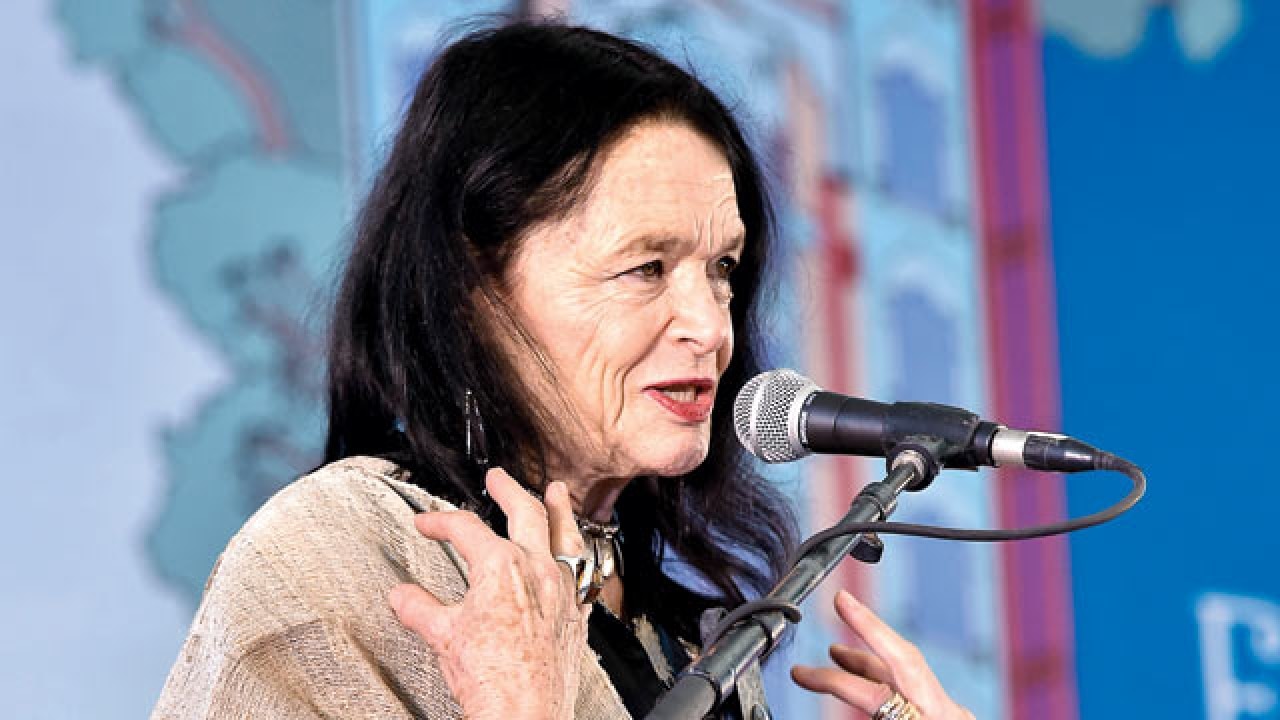
Pindrop silence may be a little too much to expect from the capacity crowd at the Front Lawns of Diggi Palace, but you could almost hear the held breaths as American poet Anne Waldman finished her Keynote Address at the ZeeJLF with the lines, "Push, push against the darkness" – breathing the words heavily into the mike, intoning them like a mantra. But that's Waldman's customary performative style – loud, breathy, each word spoken out dramatically, sometimes fast, sometimes slow, like a mantra. The style is in keeping with her belief in poetry's role in bringing about social change, which makes Waldman, one of America's senior-most experimental poets, an important voice in the recent radical movements like Occupy Wall Street and Black Lives Matter. Gargi Gupta caught up with Waldman along the sidelines of ZeeJLF to ask what she thought of Donald Trump and where the US would go from here.
My first Buddhist teacher, whom I met probably when I was 18, was Geshe Wangyal, a Mongolian lama. I was introduced to some mantras at that point. I didn't make the connection at the time but it clearly had some impact. If you're doing sadhanas, where you are getting some kind of teaching, you get a text and have to hear it until it is activated in your whole body. I also explored other Asian traditions for example, Thai poetics. Asian practices, I found, were not so much about the content but sustaining a kind of energy, and a circular thread. I tried this out fairly early, with Fast Speaking Women (1974) and poems in that book.
I don't know if it really changes anything. But I feel this urgency and the only way to express it is to be vocal and demonstrative in public. I guess for the time I was born into, with the interesting shifts in poetry, especially in the US, I felt part of helping create a way that poetry could be heard more in a public space. So when I worked on the St Marks Poetry Project, I began to try it out.
Poetry can help wake the world to itself, to value communication through language, through science, mind to mind communication. If we stop communicating as we are in the States… it's very dangerous.
I think there are people still very involved with Occupy strategies. Black Lives Matter is very strong. They have a huge battle. They have to be more underground. The more publicity you get, the more attention, the more dangerous it could be. Like what happened to the Black Panthers. I'm hearing about blacklists, I came away at a time when my friends were speaking about FBI dossiers. They want to bring back the McCarthy years. The Trump administration wanted to get the names of people involved with Climate Change, who's gone to conferences. I'm hearing about other people leaving the country.
My strategy is to work with poetry, to work in Mexico, to let people know outside of America that we are resisting, to find ways to continue to write freely, to support writers all over the world.
It's a problem, but in the States, there are so many active poets, so women and experimental poets, many small presses, so much interaction between poets with the Internet. If you have a readership of 500, you can be confident.
I did the little bit of that. I went to Kolkata and met Sunil [Gangopadhyay] and went to some parties. It was great to see that generation dancing and drinking till dawn.
Well, no, because of the economic considerations – if you're in NY you can't just drop everything to be a poet, you need a lot of money to live in NY. As an artist you need to have credentials, you need to finish college education, get a graduate degree, teaching job. So a lot of the exciting, bright people are around academic circles, so poetry is somewhat in the danger of careerism and danger of getting wrapped in academics.